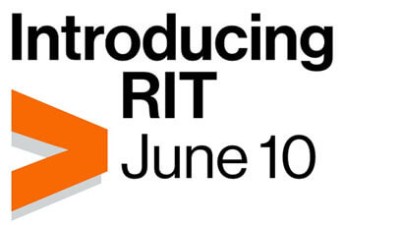Vertically Integrated Project
echoes: Exploring games as reflections of our community
- RIT/
- Vertically Integrated Projects/
- echoes: Exploring games as reflections of our community

Goals
echoes’ primary goal is to explore how developing and playing games can cultivate shared understanding and foster meaningful connections.
Students will engage with members of our broader community—such as poets, teachers, and artists—and study their work. They will then collaborate in cross-functional teams to develop games that convey the impact these individuals have had on them.
Each set of games will be showcased in a gallery on the echoes website.
For more information, see https://www.echoes-vip.org/
Issues Involved or Addressed
This ongoing project is designed to allow students to explore:
- The connections between community, games, design, and technology.
- The way the design, development, and sharing of games can be used to enhance these connections.
- The project management and technical infrastructure needed to support revolving cross-functional teams.
Methods and Technologies
The project will leverage methods and technologies in a variety of areas, including (but not limited to):
- Agile game production (Scrum, GitHub source control and projects, Google Docs)
- Web design and development (Svelte, Tailwind, NodeJS, Vercel)
- Design, development, and asset production for web-deployed games
Academic Majors / Major Area of Interest
At a minimum, the following roles and skills will be needed each semester:
- Production, web infrastructure, and game sub-team leads
- Game design
- Gameplay and web development
- Art and sound design and asset production
Relevant majors and minors from which students may be interested include, but are not limited to:
- All computing fields (e.g., game design and development, new media interactive development, web and mobile computing, software engineering)
- Game arts
- Film and animation
- Digital literatures and comparative media
- Media arts and technology
- Sound and music design
Irrespective of major, all students should have a strong interest in designing/developing meaningful interactive experiences. Students should also have some background in team collaboration and the technologies relevant to their intended role on the project.
Accepted students will be enrolled in one of the following courses for 1-3 credit hours, depending on their experience level and role on the project.
- GCIS-210: Vertically Integrated Projects (VIP) for Computing
- Some background in one of the areas needed for the project but limited prior team project experience.
- GCIS-410: Vertically Integrated Projects (VIP) for Computing II
- Clear background in one of the areas needed for the project, as well as at least 2 semesters’ worth of team project experience.
- Should be prepared to lead small sub-project efforts and mentor GCIS-210 students.
- GCIS-610: Vertically Integrated Projects (VIP) for Computing - Graduate
- Significant background in one of the areas needed for the project, as well as at least 2 semesters' worth of team project experience on Agile self-directed teams.
- Should be prepared to lead efforts within their domain, mentor other students, and proactively work to improve the processes and infrastructure for future students.
Assume that one credit hour will require ~3-4 hours per week. The goal of the variable credits is so that students can potentially stretch their work on a project over many semesters. Slowly becoming mentors and leads. “Part-time” students are just as welcome and valuable as those taking on 3 credits worth of work.
For NMID and GDD undergraduates, GCIS-210 will count as a free elective; GCIS-410 and GCIS-610 as advanced electives. For MS GDD students, GCIS-610 can be used as an advanced elective. Students in all other majors should consult with their advisor and/or program coordinator about how this project can apply to their graduation requirements.
Team Meeting Time and Place
The times and locations of meetings to be held while classes are in session will be determined at the start of each semester based on everyone’s schedules.
- Full project team meetings: At least once per week.
- Sub-team meetings: At least 2-3 times per week.
- Occasional evening or weekend events to meet with collaborators or present the project. 2-3 per semester at most.
Related Projects
This is a new project in the conceptualization and early prototyping phases. As part of their background research activities, students will leverage a variety of past work including, but not limited to:
- Game Poems: Videogame Design as Lyric Practice by Jordan Magnuson
- The production process of Changeling VR








